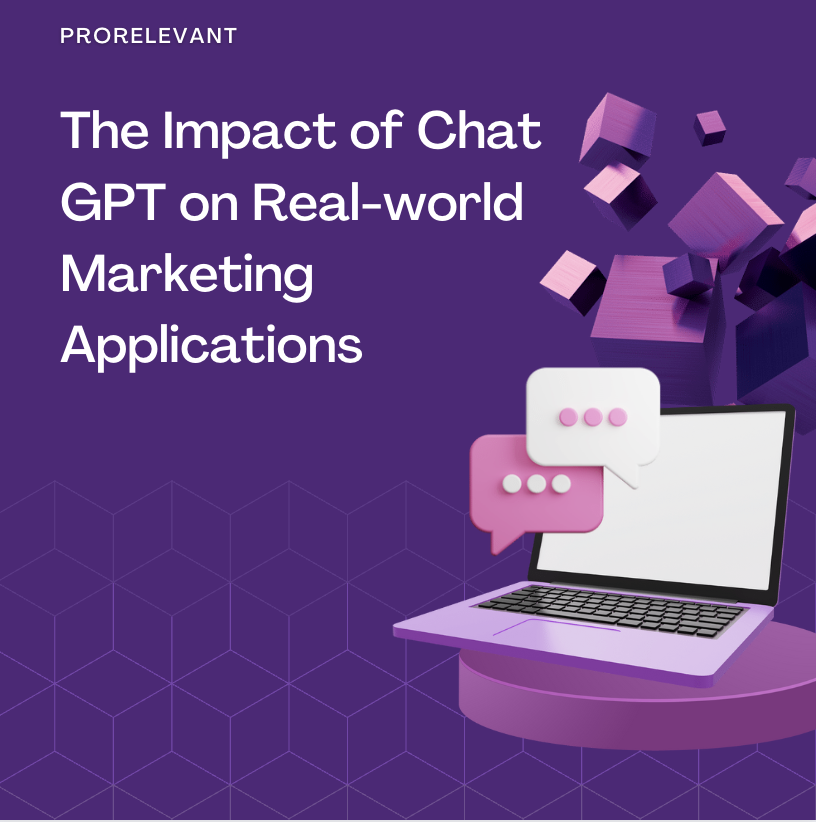
29 Nov The Impact of ChatGPT on Real-world Marketing Applications
Artificial Intelligence (AI) and marketing can transform customer engagement and brand communication when strategically combined. The prominent leader is the Chat Generative Pre-trained Transformer (ChatGPT), an OpenAI language model. In this post, we’ll dive into the practical applications of ChatGPT in marketing for major corporations like Microsoft, Coca-Cola, Delta, and Duolingo.
- Personalized Customer Interactions through AI
Personalization is a foundational element of effective marketing, and AI-driven chatbots powered by ChatGPT bring a new dimension to this function. Microsoft’s Xiaoice exemplifies how the chat function can be revolutionized by engaging users in natural, tailored conversations. For example, when interacting with Xiaoice, the chatbot comprehends the conversation’s context and adapts responses to user preferences, creating a personalized and human-like experience. Similarly, Duolingo leverages AI-generated conversations for a more interactive experience. Through ChatGPT, Duolingo’s chatbots simulate real-world responses, allowing users to use language skills in contextually relevant and engaging scenarios.
Delta Airlines integrates AI to augment its customer support function. By deploying ChatGPT-powered chatbots, Delta efficiently manages customer inquiries with instant responses and resolutions. The AI chatbot accurately interprets user queries and learns from each interaction, continually improving its ability to address concerns. This enhances customer satisfaction and allows Delta’s human support team to focus on more complex issues, streamlining overall operational efficiency and customer satisfaction.
- Content Creation and Copywriting with AI
Crafting engaging and relevant content is an ongoing challenge for marketers, and ChatGPT proves invaluable for an intelligent Chat function. Microsoft utilizes ChatGPT for content creation, maintaining a consistent and engaging tone across various communication channels. For example, the model assists in drafting social media posts, product descriptions, and email newsletters, saving time and resources for Microsoft’s marketing team. Coca-Cola also harnesses AI-generated content to enhance its social media presence. By leveraging ChatGPT, Coca-Cola ensures that its social media content aligns with its brand voice and captures the attention of its diverse audience.
- AI supported Market Research and Consumer Insights
Understanding consumer behavior is pivotal for effective marketing, and AI powered by ChatGPT plays a crucial role in analyzing vast amounts of data to extract meaningful insights. Microsoft employs AI for market research, utilizing chatbots to collect and analyze customer feedback. These chatbots engage users in surveys and conversations, providing valuable consumer preferences and sentiment data. Duolingo uses ChatGPT to gain insights into user behavior, helping the platform continuously improve its language learning modules through AI-driven analysis.
- Dynamic Advertising and Targeting with AI
AI facilitates dynamic and personalized advertising, optimizing campaigns based on user behavior and preferences. Coca-Cola utilizes AI algorithms to analyze consumer data and deliver targeted advertisements tailored to specific interests. For example, ChatGPT can analyze consumer engagement patterns to determine effective advertising channels and messaging for different demographics. Delta Airlines implements AI-powered ad targeting, providing customers relevant promotions and offers based on travel history and preferences. Through ChatGPT, Delta can deliver personalized advertisements that resonate with individual customers, increasing the likelihood of conversion and fostering brand loyalty.
In conclusion, the integration of ChatGPT into marketing strategies marks a paradigm shift. Companies like Microsoft, Coca-Cola, Delta, and Duolingo showcase the diverse applications of ChatGPT, from personalized customer interactions to dynamic advertising. As technology advances, the collaboration between AI and marketing will likely evolve, offering innovative ways for brands to connect with their audiences. The key lies in leveraging these technologies responsibly and creatively to enhance the overall customer experience.
References
Frąckiewicz, Marcin. “The Science Behind Xiaoice Chatbot’s Empathetic Responses.” TS2 SPACE, 7 Apr. 2023, ts2.space/en/the-science-behind-xiaoice-chatbots-empathetic-responses/#google_vignette.
“Introducing Duolingo Max, a Learning Experience Powered By GPT-4.” Duolingo Blog, Duolingo Blog, 16 Mar. 2023, blog.duolingo.com/duolingo-max/.
Marr, Bernard. “The Amazing Ways Coca-Cola Uses Generative AI In Art and Advertising.” Forbes, Forbes Magazine, 5 Oct. 2023, www.forbes.com/sites/bernardmarr/2023/09/08/the-amazing-ways-coca-cola-uses-generative-ai-in-art-and-advertising/?sh=1c70c2c52874.
Stotler, Laura. “Delta Elevates Customer Service Using AI-Based Virtual Assistant.” Future of Work News, 25 July 2019, www.futureofworknews.com/topics/futureofwork/articles/442785-delta-elevates-customer-service-using-ai-based-virtual.htm.




No Comments